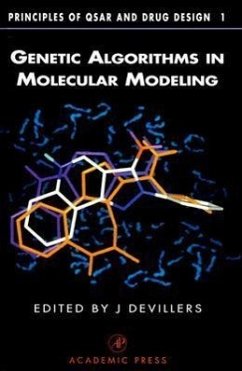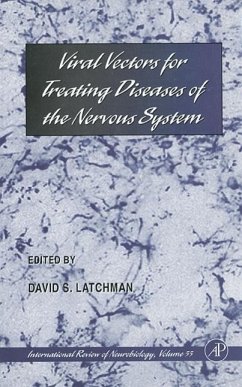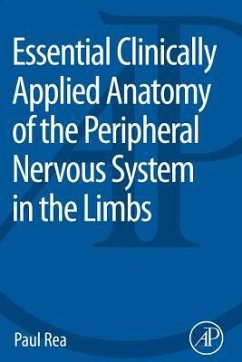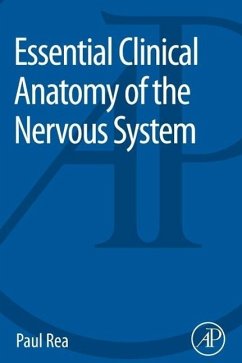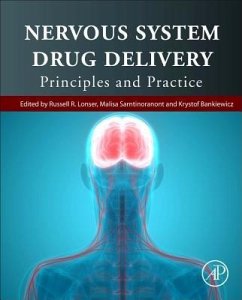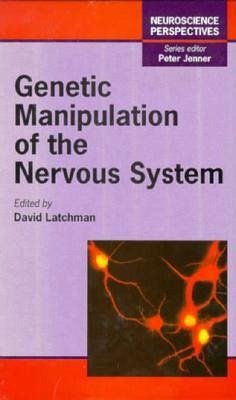
Genetic Manipulation of the Nervous System

PAYBACK Punkte
48 °P sammeln!
Neuroscience Perspectives provides multidisciplinary reviews of topics in one of the most diverse and rapidly advancing fields in the life sciences.Whether you are a new recruit to neuroscience, or an established expert, look to this series for 'one-stop' sources of the historical, physiological, pharmacological, biochemical, molecular biological and therapeutic aspects of chosen research areas.The recent development of Gene Therapy procedures which allow specific genes to be delivered to human patients who lack functional copies of them is of major therapeutic importance. In addition such gen...
Neuroscience Perspectives provides multidisciplinary reviews of topics in one of the most diverse and rapidly advancing fields in the life sciences.
Whether you are a new recruit to neuroscience, or an established expert, look to this series for 'one-stop' sources of the historical, physiological, pharmacological, biochemical, molecular biological and therapeutic aspects of chosen research areas.
The recent development of Gene Therapy procedures which allow specific genes to be delivered to human patients who lack functional copies of them is of major therapeutic importance. In addition such gene delivery methods can be used in other organisms to define the function of particular genes. These studies are of particular interest in the nervous system where there are many incurable diseases like Alzheimer's and Parkinson's diseases which may benefit from therapies of this kind. Unfortunately gene delivery methods for use in the nervous system have lagged behind those in other systems due to the fact that the methods developed in other systems are often not applicable to cells like neurons which do not divide. This book discusses a wide range of methods which have now been developed to overcome these problems and allow safe and efficient delivery of particular genes to the brain. Methods discussed include virological methods, physical methods (such as liposomes) and the transplantation of genetically modified cells. In a single volume therefore this book provides a complete view of these methods and indicates how they can be applied to the development of therapies for treating previously incurable neurological disorders.
Whether you are a new recruit to neuroscience, or an established expert, look to this series for 'one-stop' sources of the historical, physiological, pharmacological, biochemical, molecular biological and therapeutic aspects of chosen research areas.
The recent development of Gene Therapy procedures which allow specific genes to be delivered to human patients who lack functional copies of them is of major therapeutic importance. In addition such gene delivery methods can be used in other organisms to define the function of particular genes. These studies are of particular interest in the nervous system where there are many incurable diseases like Alzheimer's and Parkinson's diseases which may benefit from therapies of this kind. Unfortunately gene delivery methods for use in the nervous system have lagged behind those in other systems due to the fact that the methods developed in other systems are often not applicable to cells like neurons which do not divide. This book discusses a wide range of methods which have now been developed to overcome these problems and allow safe and efficient delivery of particular genes to the brain. Methods discussed include virological methods, physical methods (such as liposomes) and the transplantation of genetically modified cells. In a single volume therefore this book provides a complete view of these methods and indicates how they can be applied to the development of therapies for treating previously incurable neurological disorders.




